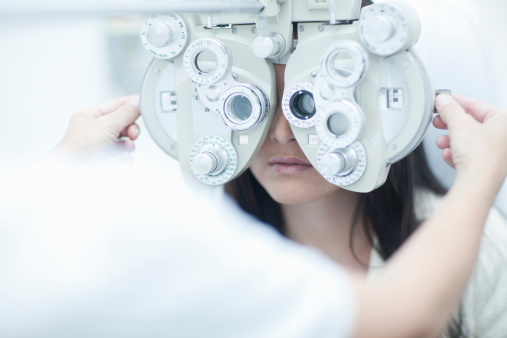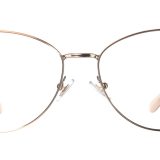Supplementing Your Eye Health
We are just a few short weeks away from New Years Day. As our calendars change, many of us vow to make other life changes. Among the most popular: a resolution to get healthier.
So, January 1 rolls around and you start working out (or cutting back on the junk food) get a healthier body. But, what about your eyes? Is there anything you can do to make them healthier?
Maybe!
A little over a decade ago, a huge study was conducted on the benefits and impact of eye health supplements. The study found that people at high risk for AMD (age-related macular degeneration) lowered their risk by about 25% by taking a certain combination and dosages of supplements.
Although there still really isn’t a consensus as to whether or not the population at large needs added vitamins or minerals to maintain eye health, many ophthalmologists treating patients with AMD have adopted the practice of recommending supplements (especially for patients already exhibiting signs of AMD).
Before I list some of the most popular supplements out there, allow me to first emphasize that your physician and eye doctor should be consulted before you add any non-food supplements to your diet. Some supplements may interact with medications or have other side effects, so consult your doctor before you purchase or try any of the following. You may also note that many of these recommended vitamins or minerals are already found in your daily multi-vitamin. So, check your labels to ensure you don’t overdose.
Here are a few of the most popular supplements for eye health and the foods you can find them in!
Vitamin A, Lutein, and Beta Carotene
My dad always told me to eat my carrots because you’ll never see a rabbit wearing glasses. In addition to carrots, foods like dark green leafy vegetables, sweet potatoes, and tomatoes contain this powerful eye-health trio. Vitamin A helps retina functioning (especially at night) and prevents dry eye. Lutein helps prevent cataracts and AMD. Your body converts Beta Carotene into vitamin A to prevent a host of diseases.
Vitamin C
Oranges, tomatoes, and a host of other delicious fruits will help prevent glaucoma and maintain your eye tissue’s collagen.
Folic acid, Omega-3 essential fatty acids and Alpha lipoic acid (ALA)
This powerful trio can frequently be found together in supplements. Foods high in folic acid include broccoli, spinach and raspberries. Omega-3s are in egg yolks, avocados, and healthy oils like flaxseed oil –which is also high in ALA. In addition to helping infants eye development, the fatty acids also decrease risk of high eye pressure, dry eye syndrome, and macular degeneration.
Think supplementing might be good for you? Call your optometrist inside America’s Best today and see what he or she recommends!










